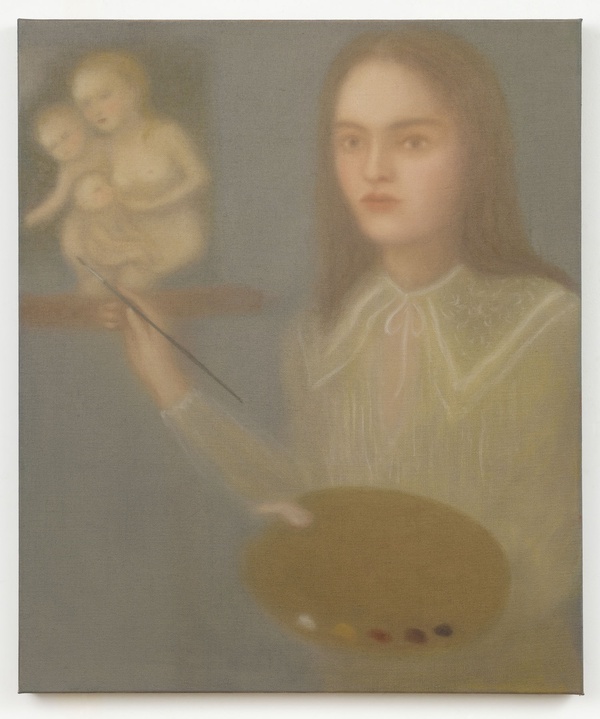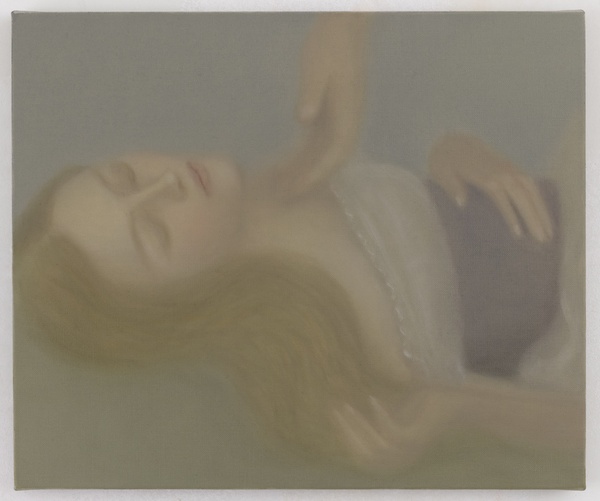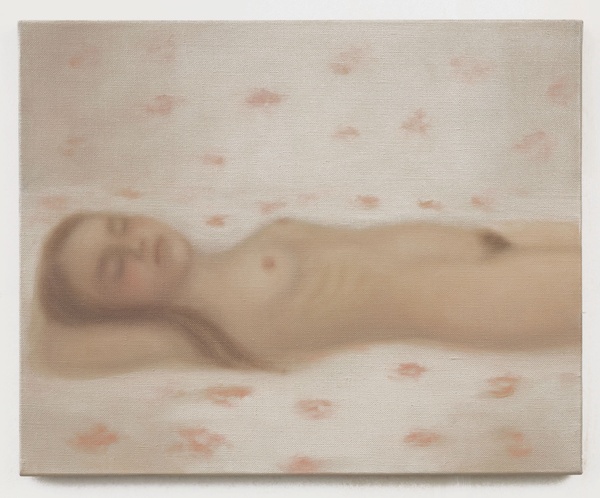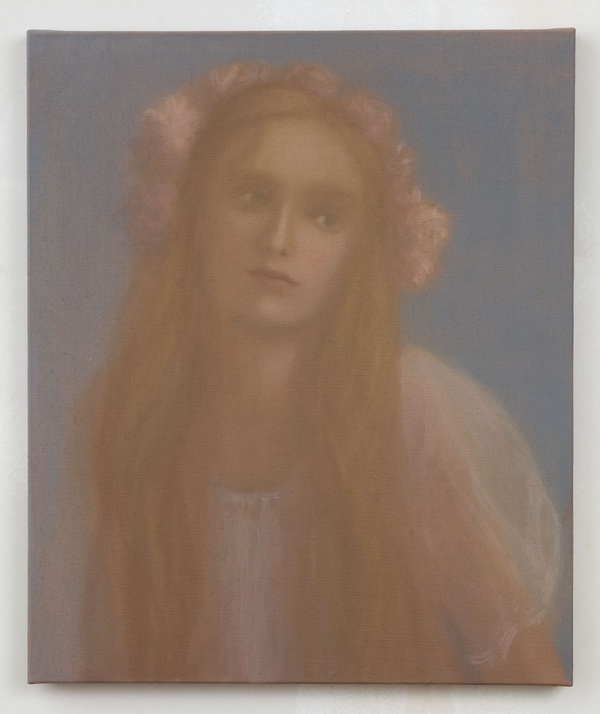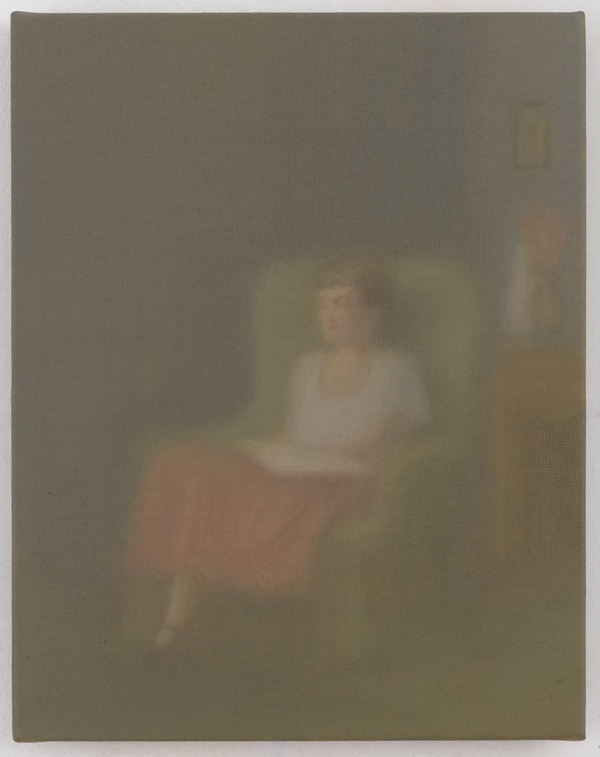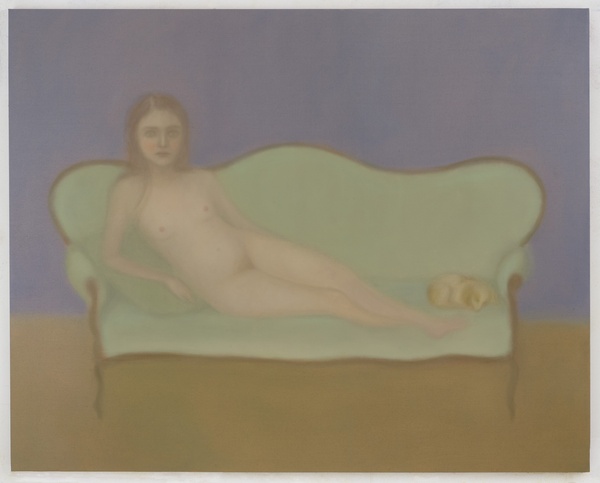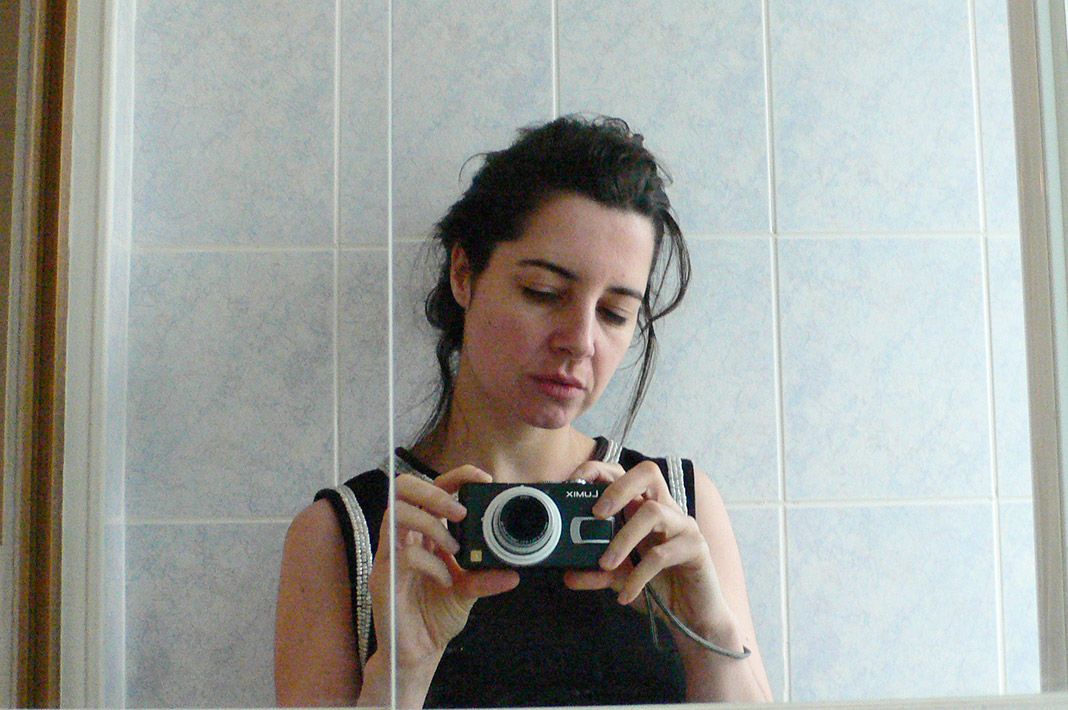
Chechu
Álava
Chechu Álava was born in Piedras Blancas, Asturias (Spain) in 1973. She lives and works in Paris.
Her paintings, inhabited by female figures, often resurrect the work of neglected women artists and poets that Chechu Álava acknowledges as her inspirational models – Suzanne Valadon, Sofonisba Anguissola, Anna Akhmatova, Lee Miller… Sometimes, her paintings “rescue” female representations from the equivocality of the “male gaze”, by borrowing them from the paintings of old masters such as Botticelli, Manet, Balthus or Cranach. These “borrowings” are however almost never direct quotations. They are more often reinventions and reconstitutions, stitched together, Frankenstein-like, from multiple references.
Chechu Álava’s enigmatic and hazy paintings have an alchemical dimension and flit between subject and object, outer and inner worlds, the unconscious and the conscious.
The work by Chechu Álava has featured in numerous institutional exhibitions: in 2020 the Thyssen Bornemisza museum (Madrid) has dedicated her a solo show (Rebeldes); her artworks have also been shown in Museu Fundacion Juan March (Palma de Mallorca), in Lazaro Galdiano Museum (Madrid), in Barjola Museum (Gijon, Spain), at Cervantès Institute (Rome), in the Fine Art Museum of Castellón de la Plana (Castellón, Spain), in Carré de Baudouin (Paris), at la Cité des Arts (Paris). They are part of important public collections: the Fine Arts Museum of Asturias, the Spanish Ministry of Culture, the Government Headquarters of Asturias, the DKV Foundation, but also numerous private collections in such countries as Colombia, Mexico, Germany, Portugal, United States, France, United Kingdom, South Africa, South Korea and Spain.
In 2014, her work was chosen by an international selection committee to feature in the “100 Painters of Tomorrow” catalogue published by Thames and Hudson.
